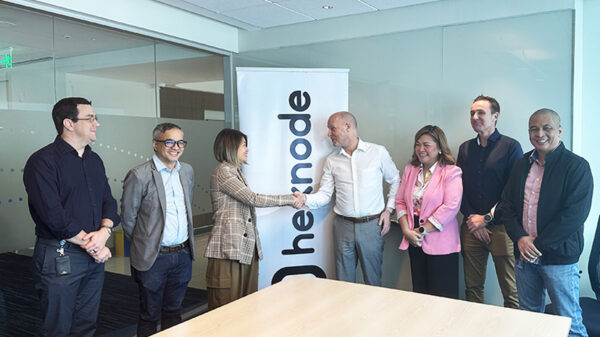An all-inclusive IP peering arrangement among major internet service providers in the country is still needed to boost local internet speed, Globe Telecom said, following its main competitor’s recent decision to host a local IP peering exchange, Philippine Open Internet Exchange (PHOpenIX).
A statement from Globe says PLDT’s arrangement with PHOpenIX does not require the dominant carrier to exchange traffic with other ISPs via the local Internet exchange. Instead, the deal will only allow PLDT clients to peer directly with government websites through the PHOpenIX.
“From a technical perspective, localization is optimization. Any amount of traffic localized will contribute to access improvement and cost savings. However, given that around 80% of access content is foreign, there is minimal impact on Internet speed. What we need is an all-inclusive IP peering arrangement among all ISPs. Peering of PLDT clients with government sites won’t cut it,” Globe General Counsel Atty. Froilan Castelo said.
The remaining 20% is Philippine traffic. This means that domestic traffic originates in the Philippines and terminates in the Philippines. However, of this 20% supposedly local traffic,up to 70% is routed outside the country, such as in Asia, US and Europe, before returning to the Philippines. Instead of getting routed directly between origin and destination locally, traffic is routed outwards through others networks, incurring additional IP transit costs, before the data is routed back to its target destination, thus causing delay in data transmission and effectively slowing internet connectivity, Castelo said.
Based on research released by We Are Social (based on Internet Live Stats, Internet World Starts, government data, TenCent Worlddata, GSMA Intelligence, We Are Social Analysis), about 44% or 44.2 million of the Philippine population are active internet users as of March 2015. The number represents an 18% growth from January 2014. Also, about 42% or 42 million are active social media users. This number represents a 24% growth from January 2014.
“Still, competition’s decision to connect with PHOpenIX is a step towards the right direction. At the end of the day, anything that will boost local internet speed is beneficial for the entire industry and we will be supportive of such initiatives,” Castelo emphasized.
Maintained by DOST ASTI (Advanced Science and Technology Institute), PHOpenIX is the only Exchange in the Philippine Internet industry operated by a neutral institution that allows the exchanges of Internet traffic in a free-market environment among local internet and data service providers.
According to Castelo, Globe is open to have IP peering effected with its main competitor, whether by mandate of the government or through a bilateral arrangement. “Peering offers a variety of advantages for our customers. As more and more of our customers shift to a digital lifestyle, we want to deliver as much traffic as possible in a way that provides optimal user experience,” he said.
An all-inclusive IP peering arrangement among ISPs will keep a substantial portion of local data traffic local and the elapsed transmission and reception time is kept to a minimum, which means access time to response time is shorter and the application access is faster. This, in turn, will result in better customer experience and delays and time outs on customer applications such as games are minimized, he explained, noting that IP peering arrangement in developed economies usually covers all data traffic of ISPs concerned.
If implemented, such arrangement could lead to increased foreign investments and result in job creation as it will encourage multinational companies to locate their websites, services and businesses in the country. Castelo also said the facility will also ease the country’s dependence on International cables and prevent a repeat of a 2008 incident where major international cables were damaged because of the Taiwan earthquake. The incident prevented Philippine customers from accessing local sites, government websites and local email.















































































































